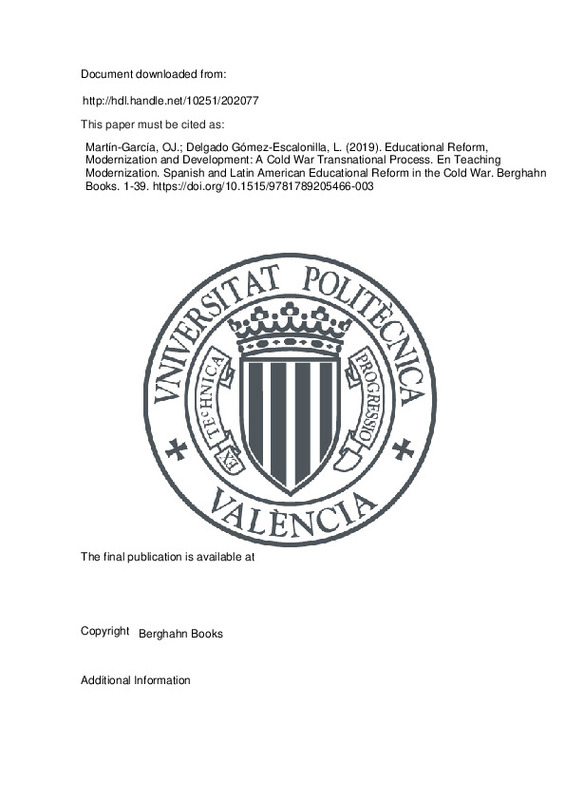JavaScript is disabled for your browser. Some features of this site may not work without it.
Buscar en RiuNet
Listar
Mi cuenta
Estadísticas
Ayuda RiuNet
Admin. UPV
Educational Reform, Modernization and Development: A Cold War Transnational Process
Mostrar el registro completo del ítem
Martín-García, OJ.; Delgado Gómez-Escalonilla, L. (2019). Educational Reform, Modernization and Development: A Cold War Transnational Process. En Teaching Modernization. Spanish and Latin American Educational Reform in the Cold War. Berghahn Books. 1-39. https://doi.org/10.1515/9781789205466-003
Por favor, use este identificador para citar o enlazar este ítem: http://hdl.handle.net/10251/202077
Ficheros en el ítem
Metadatos del ítem
| Título: | Educational Reform, Modernization and Development: A Cold War Transnational Process | |
| Autor: | Delgado Gómez-Escalonilla, Lorenzo | |
| Fecha difusión: |
|
|
| Resumen: |
[EN] The objective of this book is to analyze the set of external factors that intervened in the processes of educational reforms that took place in Spain and several Latin American countries during the 1960s and 1970s. ...[+]
[ES] [El objetivo de este libro es analizar el conjunto de factores externos que intervinieron en los procesos de reformas educativas que tuvieron lugar en España y varios países latinoamericanos durante las décadas de ...[+]
|
|
| Palabras clave: |
|
|
| Derechos de uso: | Reserva de todos los derechos | |
| ISBN: |
|
|
| Fuente: |
|
|
| DOI: |
|
|
| Editorial: |
|
|
| Código del Proyecto: |
|
|
| Agradecimientos: |
As the editors, we would like to point out that the research that has made this publication possible has been funded by the research project “International Relations and the Modernization of the Spanish Educational and ...[+]
|
|
| Tipo: |
|







![[Cerrado]](/themes/UPV/images/candado.png)


